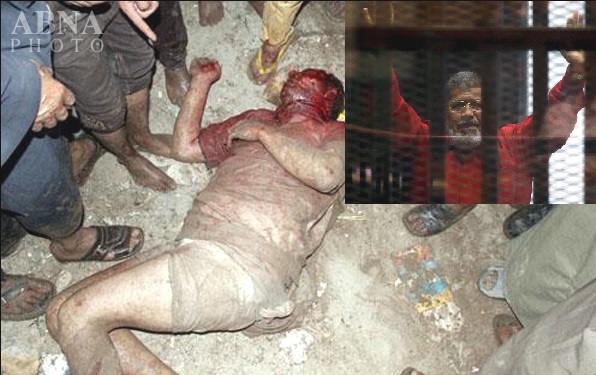AhlulBayt News Agency - An Egyptian court on Saturday recommended the death penalty for three journalists and three others charged with endangering national security by leaking state secrets to Qatar, in a ruling condemned by the Doha-based Al Jazeera channel as shocking.
Jordanian national Alaa Omar Sablan and Ibrahim Mohammed Helal, who both work for Al Jazeera, and Asmaa Al Khateeb, a reporter for Rassd, a pro-Muslim Brotherhood news network, were sentenced in absentia. They can appeal.
The sentence is the latest since a crackdown on the Muslim Brotherhood after an army takeover stripped former president Mohammed Morsi of power in 2013 following mass protests against his rule.
Al Jazeera said the ruling provoked "shock and anger" and called for international action to safeguard journalists' rights to report news freely.
"The death sentence against journalists is unprecedented in the history of world media and amounts to a real stab against freedom of expression around the world," the satellite channel said in a statement posted on its website.
Morsi and other Brotherhood leaders, as well as leading figures from the 2011 popular uprising that toppled Hosni Mubarak, many of them secular activists and journalists, are now in jail.
According to experts and religious leaders, one of the main reason of toppling Mohammad Morsi was killing of four innocent Shia Muslims including Sheikh Shehata, and Mohammad Morsi’s interaction with the terrorist groups that were the puppet of the US and the Zionist regime. Refusing to put the killers of Sheikh Hassan Shehata and his companions on trial made the fate of Morsi and Mubarak the same. Because the blood of martyr Shehata plagued Morsi.
The four men, one of whom was a prominent religious leader (Sheikh Shehata), were martyred in June 2013 when a pro-Morsi mob stormed a house in a small village near Cairo, angry just for that a Shia religious ceremony had been performed. The crowd threw petrol bombs at the house, which caught fire, and the bodies of the victims were savagely dragged through the streets.
Following Saturday's ruling, a final decision is expected on June 18, after the sentence has been referred to the top religious authority, the Grand Mufti, for a non-binding opinion.
Judge Mohammed Shireen Fahmy, who announced the verdict, also said that a ruling against Morsi and several others charged in the same case, would be postponed to the same date.
Prosecutors in Saturday's case argued that Morsi's aides were involved in leaking sensitive documents to Qatari intelligence that exposed the location of weapons held by the Egyptian armed forces.
Defence lawyers said that documents were moved out of the presidential palace to protect them during growing protests against Morsi's rule, but this process was not the responsibility of the president and the documents presented in the case show no signs of spying.
"The case's documents are devoid of any type of espionage or participation in it," a defence lawyer told Reuters.
Morsi has been sentenced in three other cases, including the death penalty for a mass jail break during the 2011 uprising and a life sentence for spying.
Qatar had supported Morsi, who is in jail along with thousands of Brotherhood members, many of whom have been sentenced to death on separate charges.
Relations between Qatar, a Persian Gulf Arab state, and Egypt have been icy since July 2013 when Egypt's then-army chief Abdel Fattah al-Sisi overthrew Morsi.
Sisi says the Brotherhood poses a serious threat to security of Egypt.
/129
source : Agencies
Sunday
8 May 2016
4:18:15 AM
752787
Egyptian court refused to issues death sentence for Morsi, the killer of 'Martyr Sheikh Hassan Shehata'

An Egyptian court on Saturday recommended the death penalty for three journalists and three others charged with endangering national security by leaking state secrets to Qatar, in a ruling condemned by the Doha-based Al Jazeera channel as shocking.
